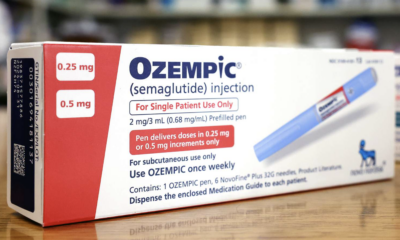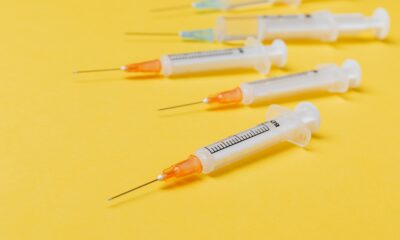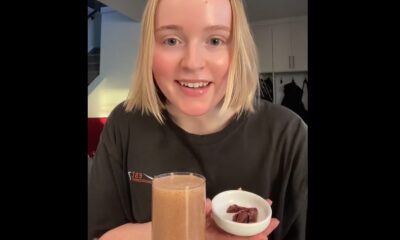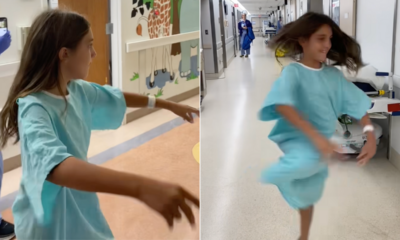HEALTH/SCIENCE
Scientist Elisabeth Bik Raises New Questions About Old Study Claiming Splenda Harms Gut Health
Published
7 months agoon

Wikimedia Commons
A scientist known for identifying manipulated data in published research is calling into question a 15-year-old Duke University Medical Center study that claimed the sweetener Splenda, or sucralose, could impact gut health.
Dr. Elisabeth Bik, a microbiologist and scientific integrity consultant, has been at the forefront of bringing data manipulation to light and is frequently featured as an expert in coverage of high-profile cases of scientific fraud.
In May, Bik identified what she described as “big problems” in the widely-cited 2008 study, titled “Splenda Alters Gut Microflora and Increases Intestinal P-Glycoprotein and Cytochrome P-450 in Male Rats,” which asserted that Splenda brand sucralose increased body weight and had detrimental effects on gut health.
She observed that test result images were “unexpectedly similar” and that certain key data were missing.
Along with the suspected image manipulation, Bik also flagged that the 2008 study was sponsored in part by the Sugar Association, a Washington, D.C.-based trade association representing some of the largest sugar companies in the world, including Imperial Sugar and the American Crystal Sugar Company.
The 2008 study was rebutted in 2009, when an expert panel published their findings in the journal Regulatory Toxicology and Pharmacology. The authors wrote that the study was “deficient in several critical areas” and that its conclusions were “not supported by the data presented.”
Bik’s most recent concerns, by raising the possibility of data manipulation, go a step further in questioning the integrity of the 2008 study, the lead author of which, Dr. Mohamed B. Abou-Donia, has already had multiple articles investigated and retracted.
Co-author Susan Schiffman cited the 2008 study in several subsequent publications, including a widely criticized study published in May of this year.
Following the publication of Schiffman’s May 2023 paper, Bik posted her questions about the images in the cited 2008 study on PubPeer, a popular scientific online community that flags possible errors in published research.
Schiffman responded, but largely avoided Bik’s questions about the content of the figures and graphs, instead explaining that she could not recall who on her team was responsible for the images in question, and saying that the team member who carried out the underlying analysis is “highly skilled and very accurate.”
In promoting her 2023 study, Schiffman claimed in media interviews that its results showed Splenda caused DNA damage, prompting a defamation lawsuit by TC Heartland, the maker of Splenda.
TC Heartland writes in its complaint that Schiffman “chose to chase headlines rather than tell the truth,” and that Schiffman “spread falsehoods about Splenda, and in doing so she harmed Heartland and the millions of consumers who rely on Splenda as an important part of achieving their health goals.”
New questions around the integrity of the 2008 study could mean that much of the existing “literature” questioning the safety of artificial sweetener use is, at best, on shaky ground.
TMX contributed to this article.
More From Lifestylogy
-


Missouri Couple Gets Married In Saint Luke’s East Hospital Delivery…
-


Costco Offering Weight Loss Drugs Including Ozempic Through Partnership With…
-


Florida: Broward Health Partners with EllaRae Boutique and Cosmix School…
-


Nutritionist Warns Ozempic is Not a Magic Bullet For Healthy…
-


Cancer survivor Fran Drescher backs nonprofit’s ‘easy’ at-home genetic testing…
-


Easy Air Purifier DIY As Shown By Palmer Ace Hardware…
-


Psychiatrist Sheds Light on the Minds of Mass Murderers
-


Part of a Carnivore Diet – ‘Optimal’ Protein Shake w/Raw…
-


11-Year-Old Girl Facing Surgery At Cleveland Clinic Dances Herself There,…
